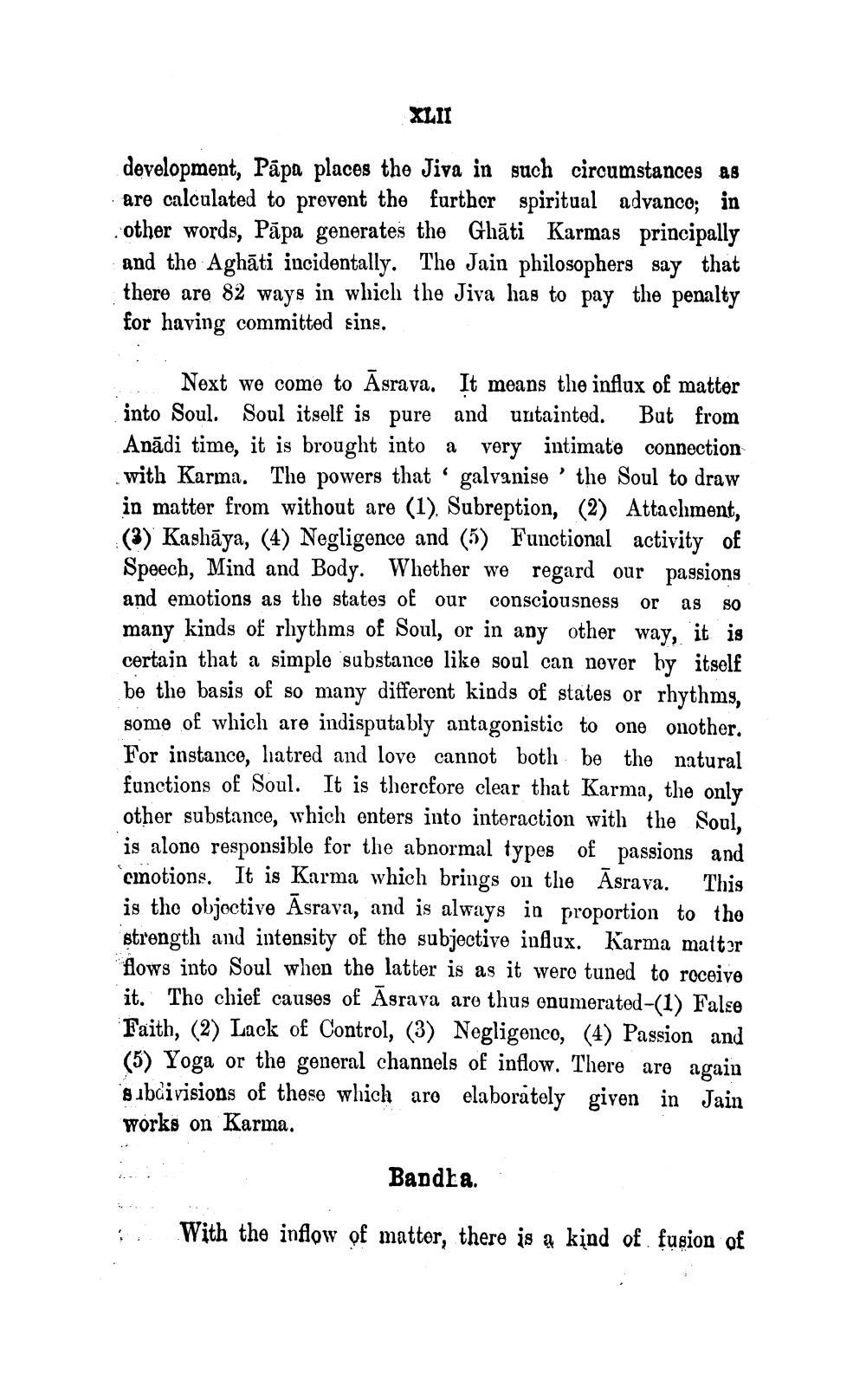________________
XLII
development, Papa places the Jiva in such circumstances as are calculated to prevent the further spiritual advance; in other words, Papa generates the Ghati Karmas principally and the Aghati incidentally. The Jain philosophers say that there are 82 ways in which the Jiva has to pay the penalty for having committed sins.
(
Next we come to Asrava. It means the influx of matter into Soul. Soul itself is pure and untainted. But from Anadi time, it is brought into a very intimate connection with Karma. The powers that galvanise the Soul to draw in matter from without are (1), Subreption, (2) Attachment, (3) Kashāya, (4) Negligence and (5) Functional activity of Speech, Mind and Body. Whether we regard our passions and emotions as the states of our consciousness or as 80 many kinds of rhythms of Soul, or in any other way, it is certain that a simple substance like soul can never by itself be the basis of so many different kinds of states or rhythms, some of which are indisputably antagonistic to one onother. For instance, hatred and love cannot both be the natural functions of Soul. It is therefore clear that Karma, the only other substance, which enters into interaction with the Soul, is alone responsible for the abnormal types of passions and emotions. It is Karma which brings on the Asrava. This is the objective Asrava, and is always in proportion to the strength and intensity of the subjective influx. Karma matter flows into Soul when the latter is as it were tuned to receive it. The chief causes of Asrava are thus enumerated-(1) False Faith, (2) Lack of Control, (3) Negligence, (4) Passion and (5) Yoga or the general channels of inflow. There are again subdivisions of these which are elaborately given in Jain works on Karma.
Bandra.
With the inflow of matter, there is a kind of fusion of




